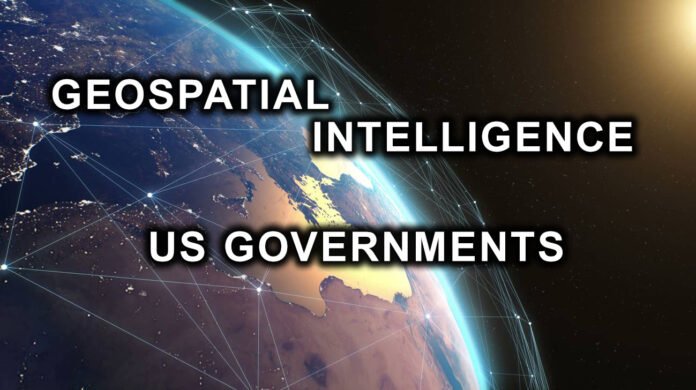Geospatial Intelligence (GEOINT) plays a crucial role across various departments of the United States, impacting national security, disaster response, environmental monitoring, and more. GEOINT is a multidimensional intelligence field that combines geographic, spatial, and temporal data to provide comprehensive insight into human activities and natural phenomena across the globe.
National Security and Defense
GEOINT is integral to the United States’ national security and defense strategies. The National Geospatial-Intelligence Agency (NGA), for example, leads in providing GEOINT to military and defense operations. This intelligence is pivotal in enhancing the capabilities of special operations forces, supporting combat missions, and providing crucial data for decision-making in various military scenarios. By analyzing imagery and geospatial information, GEOINT helps identify threats, predict enemy movements, and support strategic military planning.
Disaster Response and Management
In disaster response and management, GEOINT has proven invaluable. It aids in predicting and mitigating damage caused by natural disasters like floods and hurricanes. By analyzing various data types, such as rainfall patterns and aquifer characteristics, officials can better allocate resources and plan effective relief efforts. This technology also plays a key role in ensuring public safety, as it helps in devising evacuation routes and assessing the effectiveness of these plans.
Environmental Monitoring
GEOINT is essential for environmental monitoring and management. It helps track climate change impacts, such as rising temperatures and the effects of wildfires. This intelligence is critical in understanding environmental changes and planning accordingly, whether for conservation efforts or preparing for natural disasters.
Infrastructure and Urban Planning
In the realm of infrastructure and urban planning, GEOINT provides insights into land use, urban development, and resource allocation. It aids in designing efficient urban spaces and managing critical infrastructure, contributing to sustainable development and improved quality of life for residents.
Geospatial Data in Various Departments
The application of GEOINT extends across various U.S. departments, including Homeland Security, where it’s used for threat detection, preparedness against terrorist attacks or natural disasters, and protection of national infrastructure. Within the Department of State, GEOINT assists in visualizing geopolitical relationships and making data-driven policy decisions.
Technological Advancements
Recent advancements in GEOINT technologies have expanded its capabilities significantly. The integration of various sensor types, including radar and LiDAR, along with multispectral and hyperspectral imaging, has enhanced the precision of data collection and analysis. This technology enables real-time surveillance and rapid response to emerging situations, whether in military operations or disaster response scenarios.
The importance of Geospatial Intelligence to United States departments is multifaceted and growing. It has become a cornerstone of national security, disaster management, environmental monitoring, and urban planning, among other applications. Its role in providing accurate, timely, and actionable intelligence makes it an indispensable asset for the United States in navigating complex global challenges and ensuring national safety and prosperity.
Peter Jonathan Wilcheck
Co-Editor / Tech News Contributor
Geospatial Intelligence Technology
Tech Online News www.techonlinenews.com
Post Disclaimer
The information provided in our posts or blogs are for educational and informative purposes only. We do not guarantee the accuracy, completeness or suitability of the information. We do not provide financial or investment advice. Readers should always seek professional advice before making any financial or investment decisions based on the information provided in our content. We will not be held responsible for any losses, damages or consequences that may arise from relying on the information provided in our content.



